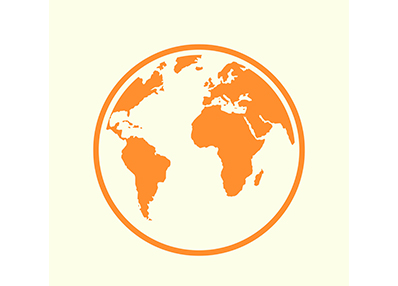
- Your MPH Program
- Schools
- Concentrations
- Blog
- Request Info From Schools
The field of public health is very diverse. Some choose to specialize in public health research while others may choose administration, preventive medicine, health education, and other specialties. One specialization that is commonly available in many Master of Public Health (MPH) degree programs is Global Health.
 Global Health is an MPH concentration for practitioners who typically wish to work outside of their country. Those who complete these degree programs usually spend one or more years working in nations that are traditionally under-served or are at high risk for outbreaks of a particular illness due to poor hygiene, lack of education on how the illness spreads, and other factors.
Global Health is an MPH concentration for practitioners who typically wish to work outside of their country. Those who complete these degree programs usually spend one or more years working in nations that are traditionally under-served or are at high risk for outbreaks of a particular illness due to poor hygiene, lack of education on how the illness spreads, and other factors.
Graduates of MPH degree programs with concentrations in global health work for a variety of organizations including governments, non-governmental agencies (NGOs), non-profit organizations providing relief after a large-scale accident or natural disaster, and also conduct research for universities. If the idea of living and working in another country sounds intriguing, earning an MPH with a concentration in global health might be a good option for you.
There are still many communities in the world that don’t have any (or limited) knowledge of how transmittable diseases spread. They may be unaware of basic sanitation measures they can implement to decrease illnesses dramatically in their communities. Public health educators play a vital role in teaching these communities about various diseases, how they spread, and the simple things people can do to prevent them. A classic example of this involves the mass adoption of mosquito nets in various parts of Africa to prevent malaria. Thanks to the efforts of public educators, millions of lives have now been saved by simply placing nets over beds when people sleep.
Whenever NGOs and other agencies respond to large-scale tragedies and natural disasters in other countries, they usually send one or more administrators to oversee the implementation of the disaster relief provided. A public health leader wears many hats. One day she may be negotiating with a local tribal leader for access to a water supply. The next day she could be overseeing the distribution of life-saving medical supplies to those in need. The day after that she might find herself organizing the rapid withdrawal of the operation due to the breakout of a local skirmish. The life of a public health leader can certainly be interesting, and it is one you should consider if you would like a career with a variety of responsibilities.
The health issues that communities may face can be very different from those of neighboring communities. Consequently, it is often necessary to have public health specialists formulate and implement health policies that address the specific needs of each community. Health policy practitioners take the time to study the problems that face a particular community, and then write policy to address those issues. The final step comes in the implementation of the policy. Those who specialize in health policy are critical links in the prevention of the spread of diseases.
There are many countries around the world where the health and well-being of women and children do not get the necessary level of attention they receive in first-world countries like the United States. Many of these women and children lack proper nutrition, medical care, and basic life skills. Maternal and child wellness advocates work to make sure these under-served individuals get the health care and attention they deserve. They can also act as health educators, working with new and experienced mothers alike with family planning issues. These public health specialists provide much-needed services to the women and children they serve.
Back to Main Blog PageAre you ready to learn more? Request Info from Schools